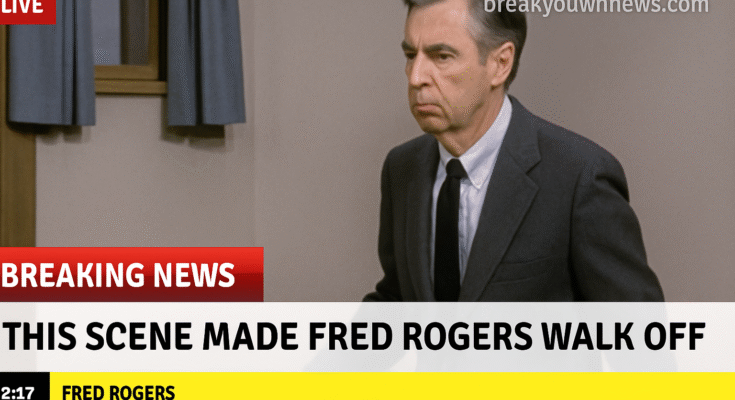Fred Rogers, the gentle soul of “Mister Rogers’ Neighborhood,” was not just a beloved TV personality but a steadfast champion for children and a man of unshakeable principles. While his calm demeanor and soft-spoken words defined his on-screen persona, behind the scenes, Fred Rogers was a force to be reckoned with, unafraid to stand up for what he believed was right.
Early Life: Seeds of Empathy
Born into a well-off family, Fred Rogers’ childhood was marked by illness and loneliness. These early experiences of isolation, however, fostered a deep empathy that would later define his life’s work. He learned to observe and understand the feelings of others, a skill that allowed him to connect with millions of children on a profound level. Bullying experiences also shaped him, instilling a desire to teach kindness and resilience. His grandfather’s unwavering affirmation, “Freddy, you make my day very special just by being you,” became a cornerstone of his philosophy.
The Accidental Path to Television
A gifted musician, Fred initially pursued music composition. However, his first encounter with television sparked a different calling. Dismayed by the superficiality of early children’s programming, he saw television’s potential for good and decided to dedicate his career to it. This path led him to work behind the scenes at NBC, but he soon grew disillusioned with the commercialism of the industry.
A Unique Mission: Media, Psychology, and Spirituality
Fred’s vision was to use television to nurture children’s emotional growth. He embarked on an unusual journey, simultaneously studying child development and theology. He wasn’t aiming to be a traditional minister but to integrate his understanding of faith, psychology, and media to create meaningful content. This unique blend became the foundation of his groundbreaking work.
The Birth of a Neighborhood
His journey took him from Pittsburgh’s pioneering public television station, WQED, to Canada, where he first stepped in front of the camera for a show called “Mr. Rogers.” Returning to Pittsburgh, he launched “Mister Rogers’ Neighborhood” in 1968. The show was revolutionary in its quiet, deliberate pace and its direct address to children. The iconic cardigan and sneakers weren’t just props; they were symbols of a safe, welcoming space.
Moments of Quiet Courage
- Saving Public Television: In 1969, Fred Rogers famously testified before the U.S. Senate, eloquently defending the importance of public television funding. His heartfelt plea moved even the toughest skeptics and secured vital funding for PBS.
- A Stand Against Segregation: In a simple yet powerful act, Fred invited Officer Clemmons, a Black actor, to share a foot-soaking pool on his show during a time of racial tension, sending a clear message of equality and respect.
- Tackling Tough Topics: Fred didn’t shy away from difficult subjects like death, divorce, and assassination. He believed that addressing fears openly could make them more manageable for children.
- Fighting Hate: When the KKK misused his voice to spread racist messages, Fred took immediate legal action to protect children and his own legacy of kindness.
- Standing Up to Commercialism: He famously made Burger King pull an ad parodying his likeness and refused to use his show to market toys, prioritizing children’s well-being over commercial interests.
The Man Behind the Cardigan
- A Life of Intention: Fred lived a disciplined life, maintaining his weight at 143 pounds (a number symbolizing “I love you”) and adhering to a routine that included prayer and swimming. He was a vegetarian, driven by a respect for all living beings.
- The Spirit of Play: Despite his serious mission, the set of “Mister Rogers’ Neighborhood” was filled with laughter and pranks, reflecting Fred’s playful spirit.
- Unwavering Values: A lifelong Republican, Fred’s political affiliation never overshadowed his core values of compassion and service. His primary concern was always people.
- Personal Growth: He acknowledged and apologized for initially asking his friend and colleague Francois Clemmons to hide his homosexuality, demonstrating his capacity for growth and understanding.
A Lasting Legacy
Fred Rogers passed away in 2003, but his influence endures. He left behind not just a beloved television show, but a powerful message: that every individual is special, and that kindness, empathy, and understanding have the power to change the world. His life was a testament to the quiet strength found in gentleness and the profound impact of living one’s values.



